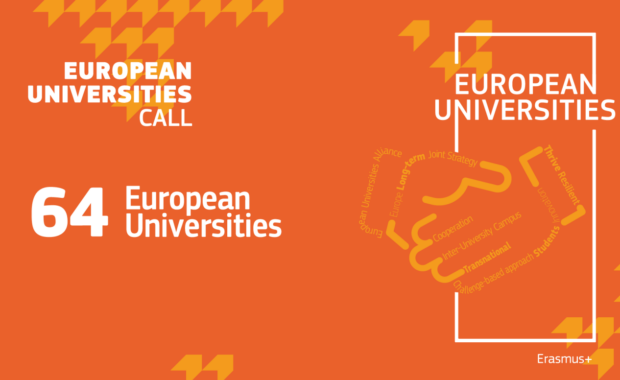Pupils and teachers from Portuguese and Spanish European Parliament Ambassador Schools will meet from 1 to 3 June in Punta Umbría (Huelva) to commemorate the 40th anniversary of the entry of both countries into the European Union and to build the future together. Nearly 200 participants, including pupils and teachers from six […]
Read MoreThe eTwinning platform celebrates 20 years of school collaboration
eTwinning, the EU’s flagship initiative for cross-border school collaboration, connecting teachers with each other, celebrates its 20th anniversary this year. Over 160,000 projects have reached more than three million pupils in the eTwinning community over these two decades, with the help of over 1.2 million teachers in 295,000 schools. Among these projects are the 2024 […]
Read MoreNew Education and Training Monitor for the evaluation of young Europeans.
The Commission’s Education and Training Monitor 2024, launched today on the occasion of Education for Climate Day 2024, takes a closer look at how the basic skills of Europe’s young people are evolving and provides figures for each Member State. Overall, performance in reading, maths and science has fallen to record lows across the EU […]
Read MoreA quarter of young people employed while in education
In 2023, 25.7% of young Europeans (aged 15-29) were employed during formal education. While 71.4% remained outside the labour force, 2.9% were available for employment and actively seeking employment (unemployed) while in formal education. This information comes from the Statistics Explained article on participation of young people in education and the labour market published by Eurostat today. Despite a […]
Read More117 schools from all over Spain become Ambassador Schools in the year with the highest number of applications in history
In total, 725 applications were received for the 2024 – 2025 academic year. In the end, 117 schools from all the autonomous communities and Melilla and 50 mentor schools from 15 regions have been chosen. 41,000 students have already participated in the Ambassador Schools programme. The 2024-2025 academic year of the European Parliament Ambassador Schools […]
Read MoreNew funding for additional European Universities alliances will boost cooperation in higher education
The Commission announced the results of the 2024 Erasmus+ call for the European Universities initiative, which provides support to alliances of higher education institutions. With today’s results, 14 new European Universities alliances are joining the 50 previously selected alliances and will receive up to €14.4 million each over a period of four years. These 64 […]
Read MoreEarly school leavers: Spain has the second highest rate in the European Union in 2023
In 2023, the share of ‘early school leavers’ (young people aged 18-24 leaving early from education and training) in the EU was 9.5%. The share has steadily decreased over the last 10 years (from 11.8% in 2013), bringing the EU members closer to the target of reducing the rates of early school leavers to below […]
Read MoreEurostat: by 2023, 68% of girls in the European Union will have at least basic digital skills
In 2023, 68% of girls aged 16-19 in the EU possessed basic or above-basic digital skills, noticeably exceeding the share in the general population (56%). The proportion of boys in the same age bracket with at least basic digital skills was slightly lower (65%). Across age groups, only women or men aged 20-24 and 25-34 demonstrated […]
Read MoreSpanish was the second most studied foreign language in upper secondary education in the EU.
In 2022, 60.8% of students in general upper secondary education across the EU studied two or more foreign languages as compulsory subjects or as compulsory curricular options, a decrease of only 0.2 percentage points compared to 2021 (61.0%). In upper secondary vocational education, this percentage was 33.8 %, a decrease of 1.1 percentage points compared […]
Read More








